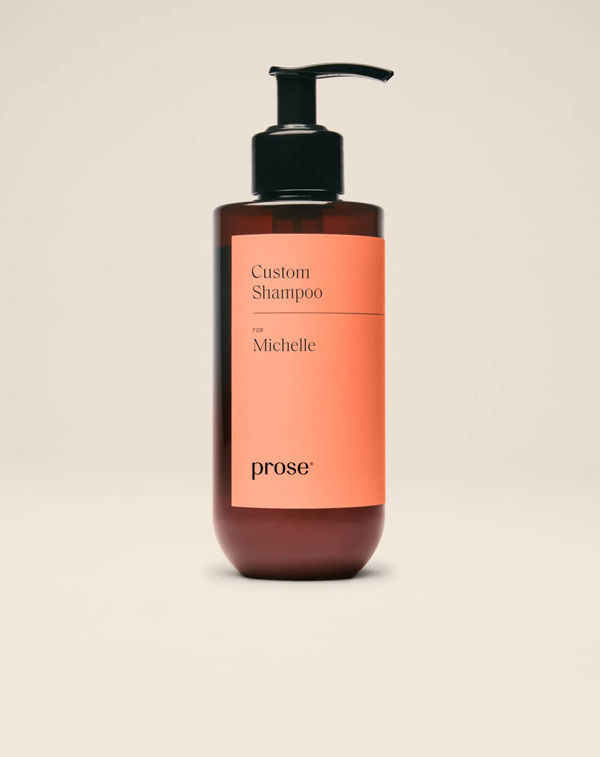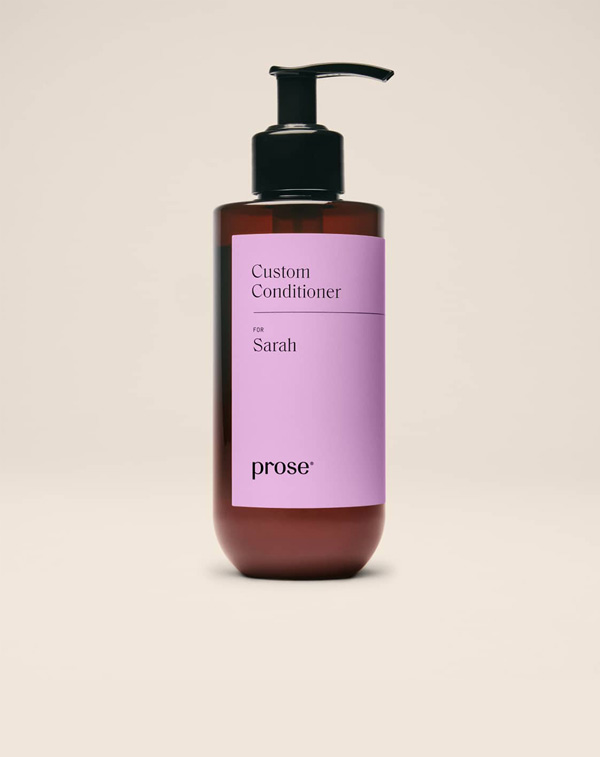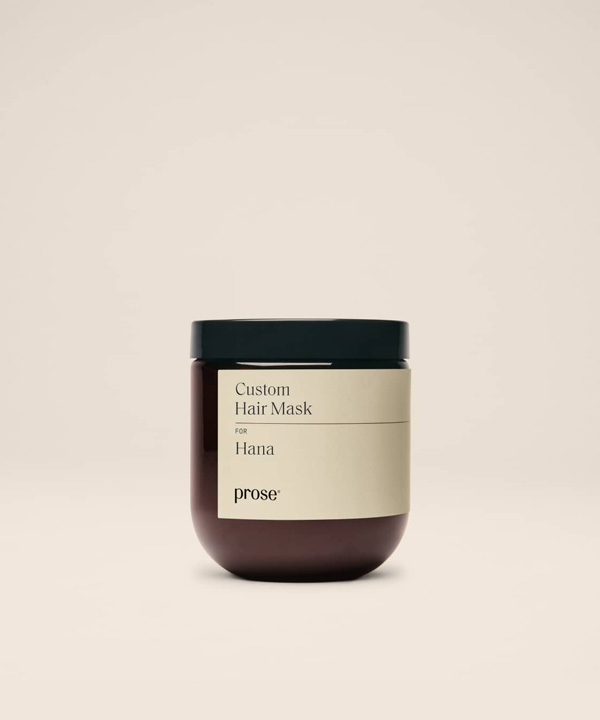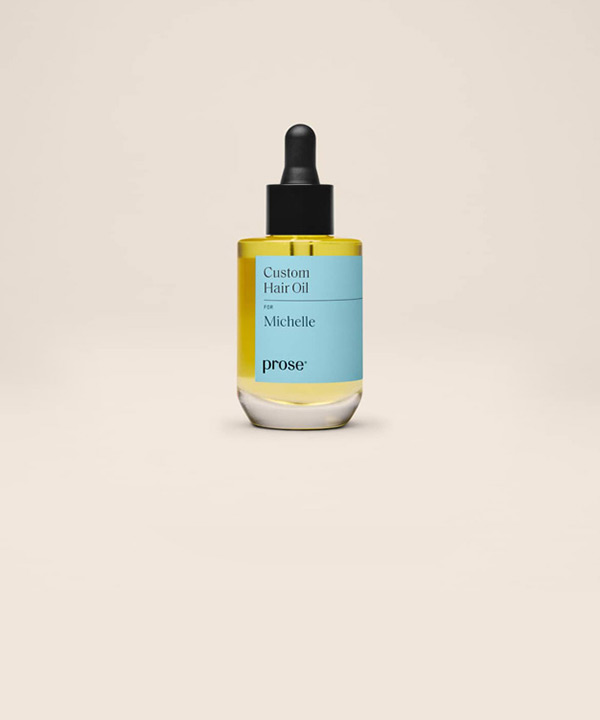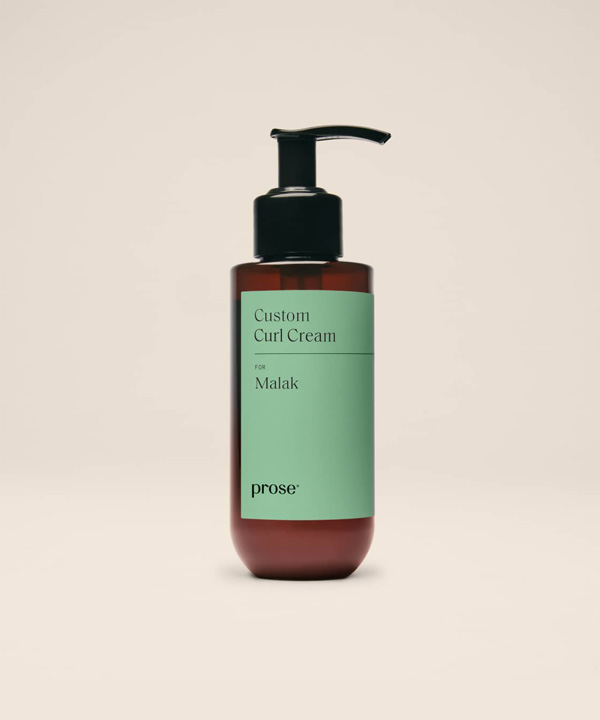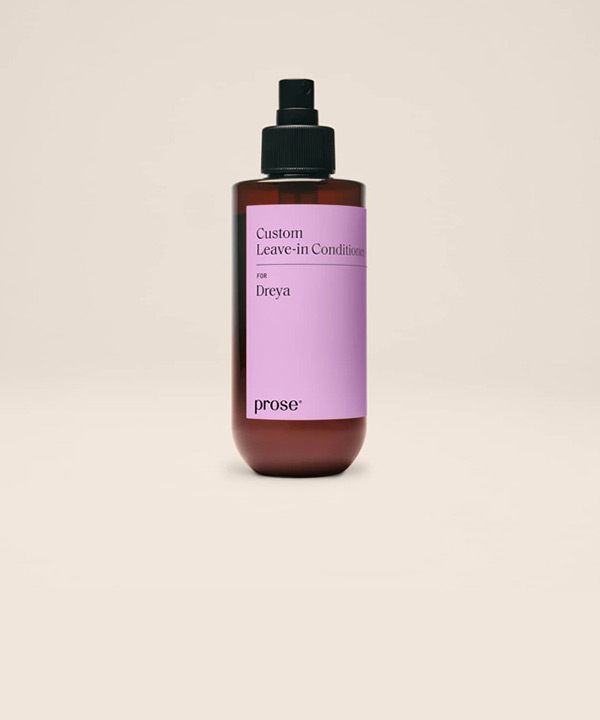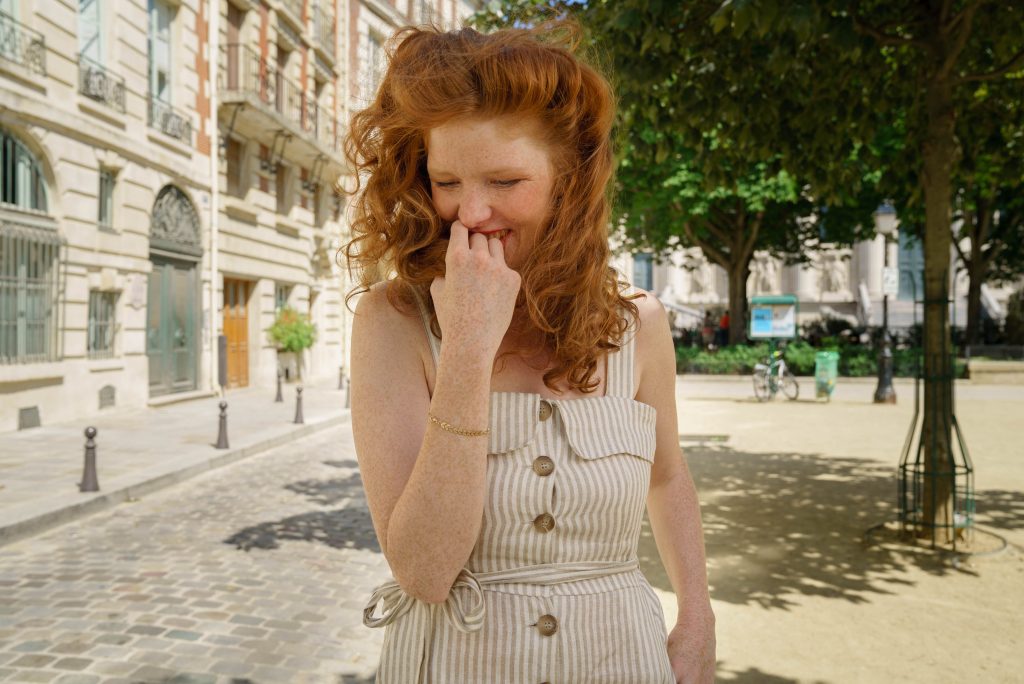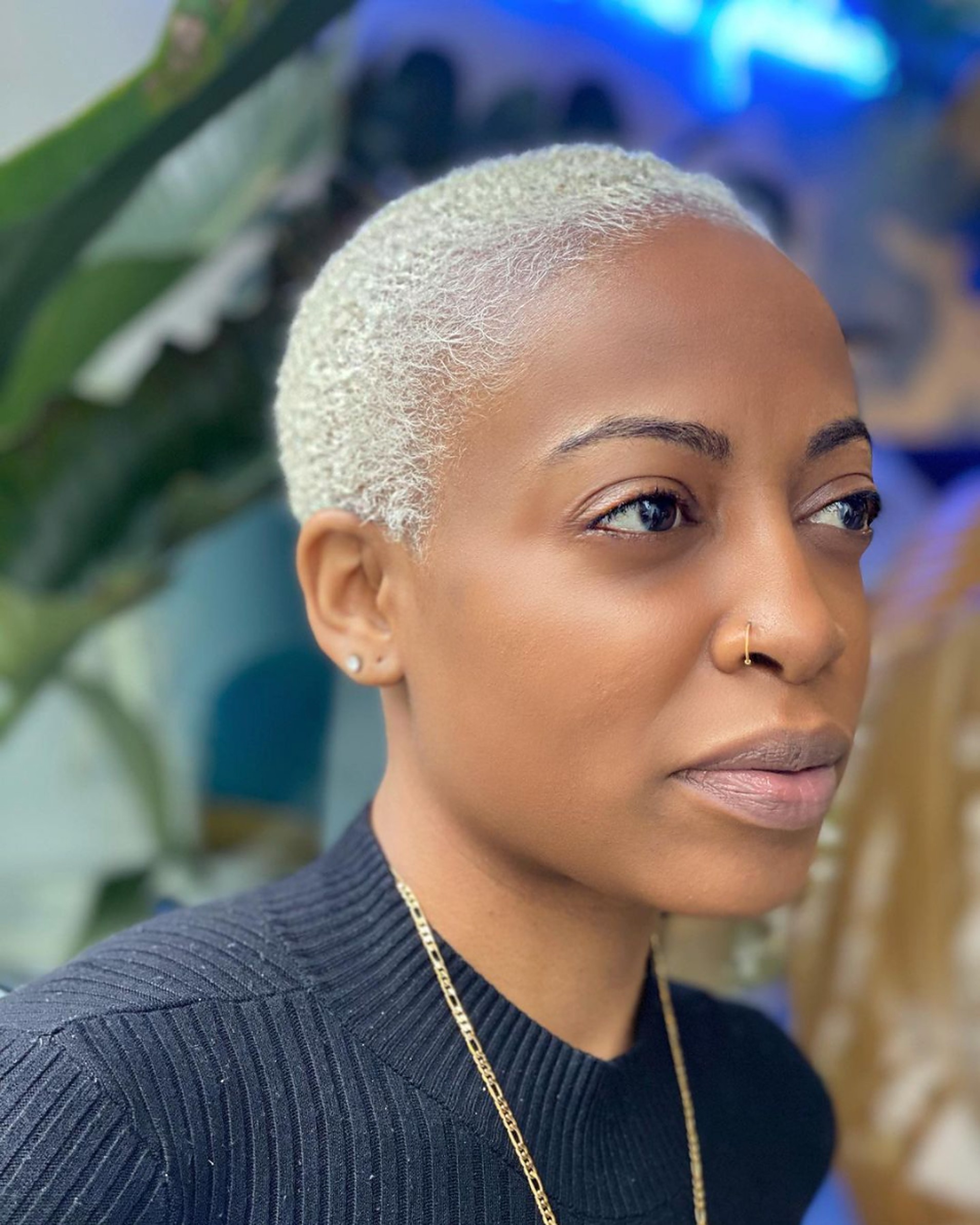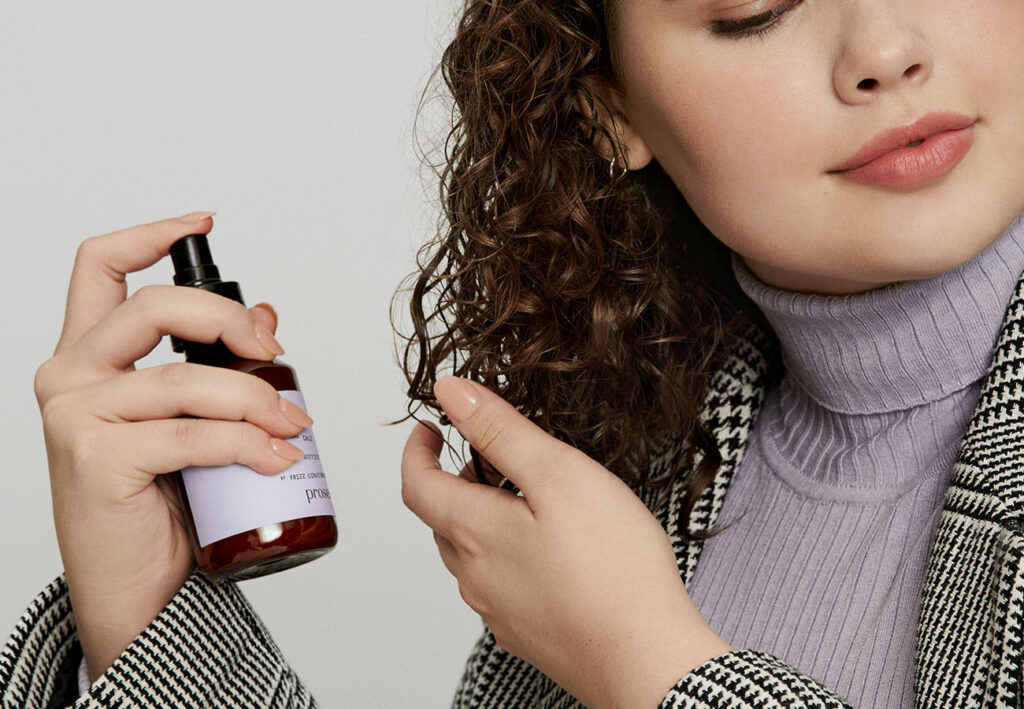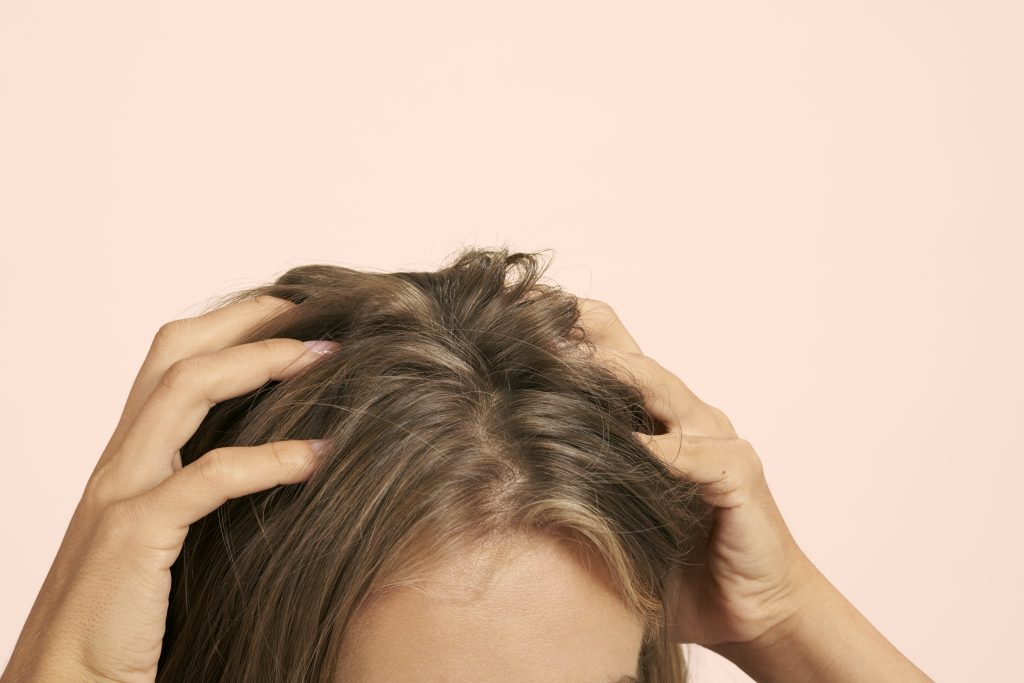Dry strands
Caused by: Chlorine, Saltwater, Heat, UV Rays, Air Conditioning
Dehydration sits atop this list, given its prevalence in summer. (And winter, for that matter, with its dry air and hot showers.) It seems like everything compromises your hair’s buoyancy in the warmer months, from the pool to the sea, to the sunbeams themselves. Here is Vasyukevich’s explanation of how even air conditioning can affect your hair in summer (seriously, we can’t catch a break, even indoors): “Being in an air-conditioned environment strips away moisture and can leave hair fragile as well as increase static,” he says. “This environment may even lead to hair loss for some. Abrupt change in temperature is also difficult for hair to handle.”
The Remedy: Moisture, and more moisture. There are many ways to achieve this, from a 1-2x weekly pre-shampoo hair mask, to a customized shampoo and conditioner duo that focuses on hydration and nourishment (karanja oil is one ingredient Prose loves, which later absorbs UV rays). If you’re still at risk of moisture loss and want to prevent it, then avoid getting your hair wet during a day at the beach or pool. You can also trap moisture in with hair oil, which works as both a daily defensive solution—just apply pre-swim—and as a recovery treatment after you wash. (Leave-in conditioner has a similar impact as a recovery treatment.) Curlier styles know to stock up on curl creams in order to bring back bounce and definition.
Loss of color or vibrancy
Caused By: Chlorine, Saltwater, UV Rays
Vasyukevich explains why natural hair color can be compromised in summer: “Hair gets its color from a pigment called melanin, and when melanin breaks down [due to sun exposure], hair color fades.” Add this to the fact that saltwater, chlorine, and heat itself can fade dyed and bleached colors, and you’re scrambling to find a way to preserve the tone you’ve chosen for yourself, rather than the brassy or dulled one you’ve been dealt.
The Remedy: Aside from a re-up on color (which hopefully you don’t need), prioritize future elemental fading with a leave-in conditioner (with color-defending ingredients like oat oil, and heat shields like pea protein and arginine)—and maybe a hat, too. Bleached and platinum styles should balance hair with a prescriptive purple shampoo or conditioner, while other dye colors can find renewal from ingredients like oat oil (for color protection) and silk proteins (for cuticle health), be it in a pre-shampoo hair mask, shampoo, and/or conditioner.
Breakage, brittleness, and split ends
Caused By: Chlorine, Saltwater, Heat, UV Rays, Wet Brushing, Ponytails, Top Knots
Salt water and chlorine can inversely impact keratin levels in the hair, Vasyukevich says. This protein is essential for hair structure and longevity. “UV rays [also] deplete the hair of natural lipids,” he adds. “This loss can cause brittleness, and hair may appear frizzy due to hair fractures.” Breakage and split ends are themselves also a result of the general summer hair dryness we all experience, exacerbated by wet brushing, and any tautly-tied styles that keep hair pulled back out of the face.
The Remedy: Moisture, and maybe a haircut. Many of the remedies here are the same as for overall dryness. Pierre recommends hair oil above all else in terms of restoring brittle, damaged hair, and protecting it from further moisture loss, frizzing, and end splitting. If you can twist it up in a protective style or loose bun without compromising further strain. Pierre also recommends applying a leave-in mask or conditioner before tying it up, and then leave it to repair all day. (You could do this overnight, too, ideally with a hair cap.) However, if split ends are part of the problem, then you’re probably going to need a trim—just at the ends—or else the splitting might continue higher up the strand.
Tangling
Caused By: Swimming, Humidity, Dryness
If your hair goes from wet to dry, settled to poofy, or pristine to wind tossed, then you’re a prime candidate for some summer tangling. (And the more texture or curl your hair has or the finer the strand, the more nightmarish this becomes.)
The Remedy: Leave-in conditioner. In addition to smoothing frizz, a detangling leave-in conditioner will relax hairs and allow for a gentle reorder. (Prose prioritizes ingredients like fermented rice water for smoothing, and acacia collagen for hydration.) Each person’s method of physically detangling the hair differs based on their individual needs, but Prose recommends applying its product to damp, towel-dried hair.
Dry, irritated, or flaking scalp
Caused By: Sweat, Saltwater, Chlorine, Heat, Air Conditioning
Along with dry strands is the dreaded dry and/or irritated scalp. Whether it’s the result of your sweat drying up on your head, or excessive salt, chlorine, heat, or A/C, it’s just as difficult to keep your scalp harmonized as it is to preserve perfect hair moisture. You might experience flaking, itching, burning, or anything of the sorts.
The Remedy: Balancing products. It can be a delicate game, trying to bring harmony to an upset scalp. You might prioritize ingredients like tea tree oil to fight fungal or bacterial buildup, whether found in a pre-shampoo scalp mask or your shampoo and conditioner themselves. And, now would be the right time to give the scalp and follicles some extra support from a targeted scalp supplement.
Sunburnt scalp
Caused By: UV Rays
So you slathered on the SPF everywhere except your scalp. We all learn this lesson the hard way, whether our hair is suddenly thinner than years past, or we pointed a particularly hard hair-part towards the sun all day, it’s never a pleasant result. Sunburns do severe damage to the health of hair follicles on the head, in addition to being downright painful and peely. “If your scalp is repeatedly exposed to the sun, regenerative functions are decreased,” Vasyukevich warns. “More serious damage, infection, or scarring could lead to hair loss, though in rare cases. Each time you expose your skin to UV radiation, you increase your risk of developing skin cancer. In that way, one single burn is not irreversible.”
The Remedy: “Staying hydrated, minimizing use of hot-tools on hair and showering in tepid water are recommended during recovery from sunburnt scalp,” Vasyukevich says. “You may also use a cold compress and take over-the-counter pain medication if you are experiencing pain. Wear a hat to protect the scalp from sun exposure until the burn is healed, and avoid anything formulated with exfoliants, fragrance, or alcohol, as this can increase irritation.” Once the burn itself heals, rotate in a 1-2x weekly pre-shampoo scalp mask to help restore balance to the head. If you’re looking to fortify the recovery, or if you feel like this sunburn has compromised hair growth or retention, then consider a supplement plan that supports scalp, follicle, and hair health. And remember, prevention is key here. If you’re prone to sunburns on other areas of your body, keep your scalp covered with a UPF hat or scarf.
Poofing and unwanted frizzing
Caused By: Humidity
If your hair’s cuticle isn’t fully closed off, then it’s bound to absorb some moisture from the air and warp itself into something mushroomy or simply bigger than you intended. It’s curious that we can experience unwanted frizzing from both a lack of moisture and an abundance of it, but here we are.
The Remedy: Smoothing ingredients and cuticle coverage. Start with a conditioner applied throughout the lengths of your hair, with smoothing ingredients like fermented rice water, and heat defense like arginine. Then, you want to help coat the cuticle of the hair, so that it isn’t impacted by the heat or moisture in the air around it. The best products for this are a customized hair oil (pequi oil is a Prose favorite to block frizz) or a curl cream (again with pequi oil, and flax seed extract for curl definition).
Summer can wreak havoc on hair, but dry and brittle strands, unwanted frizz, and even sunburns can be avoided with the right tips and products.



